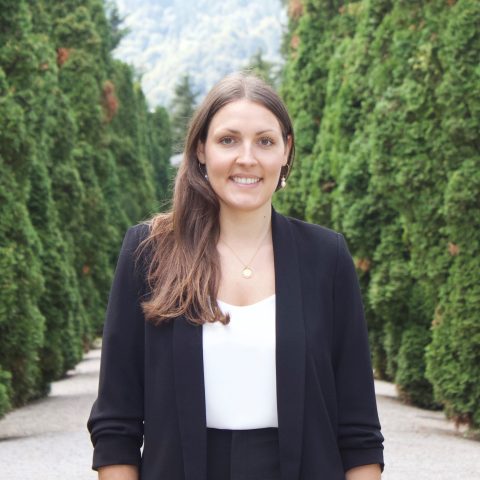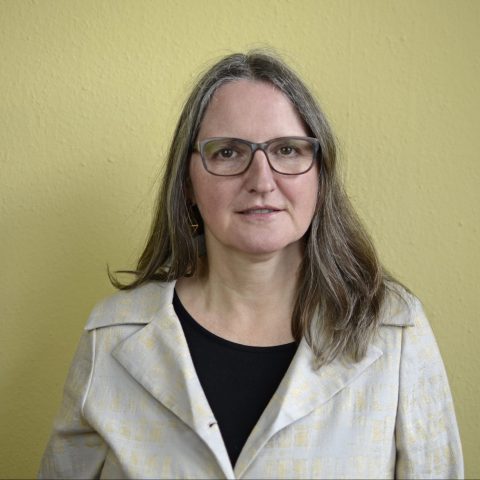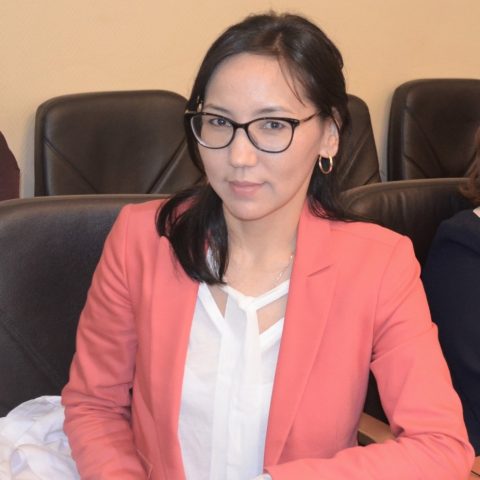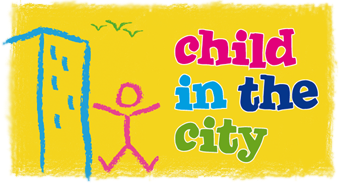This round invites you to join one of three break-out sessions around the following themes. Soon we will add information about other speakers in this round.
Session D – The implementation of children’s rights in urban planning, development and design

Strengthening the Right to the City for Children? The Policy Framework for the Right to Participate in Urban Planning in Turkey and Istanbul
Özlemnur Ataol, Ph.D. candidate at the Eindhoven University of Technology
Children’s participation in the decision-making and design of urban public spaces is crucial for achieving inclusive cities. In this presentation Özlemnur will analyse national and local policy of Turkey to distill how children’s right to participate is legislated and institutionalized in this country. Children are an important yet neglected group in the pursuit of participatory urban planning and design nationally and locally. Discovering the roots of the problem, this analysis study supports legislation change leading to changes towards underestimation of children by introducing a specialized mechanism for children’s participation that embraces their individuality
 Space and children’s participation in urban planning dynamics
Space and children’s participation in urban planning dynamics
Gabriela Trevisan, PHD for the development of projects in the axes of Education and Social Participation, Citizenship and Gender Equality Social participation. Member of ProChild CoLAB Against poverty and social exclusion.
Co-authors: Cidália Silva, Assistant Professor of Architecture and Urbanism at the University of Minho’s School of Architecture, Art and Design, Visiting Professor and Researcher at SRH University Heidelberg; Mariana Carvalho, Architect and Researcher at ProChild CoLab; Manuel Sarmento, Associate Professor of Aggregation at University of Minho, Portugal. Member of the Directory of ProChild CoLAB, Colaborative Laboratory Against Child Poverty and Exclusion.
This presentation focuses in preliminary results of ongoing participatory processes of children and young people in the configuration of life in common, in an urban context. The initial results of children’s perceptions and representations, collective mapping exercises, mental mapping and needs diagnosis about their neighbourhoods and communities will be presented and discussed. The project of ProChild coLAB aims to transform the space-time of children, from their own voice, based on research sociological aspects of childhood that focuses on the relationship between the child, from a perspective of child citizenship and building a sustainable environment. In Covid lockdown, also alternative strategies are discussed to work with children and young people on territory mapping. It also shows the project presented to Bairros Saudáveis, based on community participation in needs assessment and children’s perspectives to improve their surrounding environment.
Session E – Children’s and young people’s participation as a tool to establish children’s rights
 Council of children’s voices: virtual participation during Covid-19 pandemic
Council of children’s voices: virtual participation during Covid-19 pandemic
Marica Notte, Institute of Cognitive Sciences and Technologies- Italian National Council of Research
The international project “The City of Children” of the Institute of Cognitive Sciences and Technologies (Italian National Council of Research) originates from Francesco Tonucci’s idea who had a specific political goal: improve children’s well-being changing the parameters of the city-life quality. “The City of Children” promotes the direct involvement of children into city management, establishing an active collaboration between them and the local politicians. The “Council of Children” is an experience inside the project that promotes democratic participation, and in particular it is a concrete response to the 12th Article of the UN Convention on the Rights of the Child (1989), recalling the fundamental right to participation. The findings clearly demonstrated that children need to be present specially when politicians make decision with them.

ACT2gether: a holistic approach to realize Children’s Rights through partnership between generations
Luis Manuel Pinto, Director of Programmes and Learning at Learning for Well-being Foundation
When children and adults act as competent partners, they create a world that is fairer, more sustainable, and where everyone can realize their unique potential. ACT2gether is a partnership initiative spearheaded by the Learning for Well-being Foundation, co-created with other organisations as well as children and young people. In this presentation the speaker will report on the experiences of the four ACT2gether sites, emphasising the strategies used to create meaningful collaboration between children and adults, also when activities pivoted online due to the pandemic, mentioning the victories and the challenges. He will also give participants access to the tools and opportunities to engage; and crowdsource ideas for how to make ACT2gether more fitting of the needs of children and adults in other cities and regions.

Knocking on the door of decision making – children’s participation in Albania’s local government decision making
Anita Paza, PhD candidate and international development / child rights’ practitioner, London South Bank University
Anita will present findings about how children themselves conceptualise their participation in local government decision-making processes as well as how they articulate both the challenges and opportunities in engaging with the local authorities as present and future partners. The findings result from listening to Albanian children aged 13-18 as to how they make sense and articulate their participation in local government decision making based on Laura Lundy’s model of children’s participation. Such model offers a conceptualization of Article 12 of the UNCRC focusing on four key concepts such as: space (children must be given the opportunity to express a view), voice (children must be facilitated to express their views) , audience (the view must be listened to) and influence (the view must be acted upon, as appropriate).
Session F – Critical reflections on the framework of United Nations Convention of the Rights of the Children
 Children and adolescents at the heart of community development – UNICEF’s “Child Friendly Cities Initiative”
Children and adolescents at the heart of community development – UNICEF’s “Child Friendly Cities Initiative”
Mona Meienberg, Child Rights Advocacy at UNICEF Switzerland and Liechtenstein, Responsible for the “Child Friendly Cities Initiative”
UNICEF’s “Child Friendly Cities Initiative” is an international initiative, which is implemented in countries around the world. However, its application is flexible enough to allow communities to take measures that respond to their respective political systems, structures and needs, which guarantees a global applicability. The initiative aims at systematically implementing the UN-Convention on the rights of the child at the municipal level by providing local governments with an appropriate instrument. It focuses at the municipal level because this is the direct living environment of children and where it is most important that offers, structures and mechanisms for children are in place. Mona will give an overview how UNICEF Switzerland and Liechtenstein implements this initiative promoting children’s rights at the municipal level.


Why not Ask the Experts? – Children’s Perspective on the Implementation of Children’s Rights in Switzerland and Liechtenstein
Tobias Kindler, research associate at the Eastern Switzerland University of Applied Sciences, PhD student at the Hebrew University of Jerusalem
Sybille Gloor, Child Rights Advocacy at the Committee for UNICEF Switzerland and Liechtenstein
The presentation will address the topic of monitoring and reporting on the implementation status of children’s rights in Switzerland and Liechtenstein. Tobias and Sybille will present the results of the study conducted in 2019 by UNICEF Switzerland and Liechtenstein in collaboration with the Institute of Social Work and Social Spaces at the Eastern Switzerland University of Applied Sciences. They will particularly focus on children’s perspectives in regard to well-being, protection and violence as well as participation. For example, they will show that children and adolescents are still not involved often enough in decision-making processes at the local level and at the same time wish for more participation possibilities. The presentation ends with recommendations on the integration of children’s rights into (local) policy planning.
 How to integrate a UNCRC perspective into the budget process in Germany
How to integrate a UNCRC perspective into the budget process in Germany
Kristina Nauditt, Kinderfreundliche Kommunen e.V.
The mission of “Kinderfreundliche Kommunen e.V.“ (the Childfriendly Cities Initiative in Germany) is to promote the implementation of the UN Convention on the Rights of the Child (UNCRC) at the municipal level and help to raise its awareness in communities across Germany to improve their services, planning processes, and structures in accordance with the Convention. The association started a national working group for child-based municipal budgeting beginning in autumn 2020. This presentation will give first insights of the working group’s findings. What are the opportunities of integrating a CRC perspective into municipal budgeting in Germany, which obstacles need to be overcome?
 Critical reflections on the framework of United Nations Convention of the Rights of the Child: The best interests of the child
Critical reflections on the framework of United Nations Convention of the Rights of the Child: The best interests of the child
Aigerim Mussabalinova, Research Assistant at the School of Postgraduate Education, Nazarbayev University, Kazakhstan
The presentation will give a critical reflection on one of four principles of the United Nations Convention of the Rights of the Child, the best interests of the child. The article however does not provide the definition of the principle or details on how to understand it and consequently, the weak concept of the the principle contributes to inequality of opportunity. The lack of understanding of this principle in Kazakhstan explains that the interest and the rights of the child are well implemented in practice. Strengthening the principle of the best interest of the child in the UNCRC might lead to better implementation of it in practice
